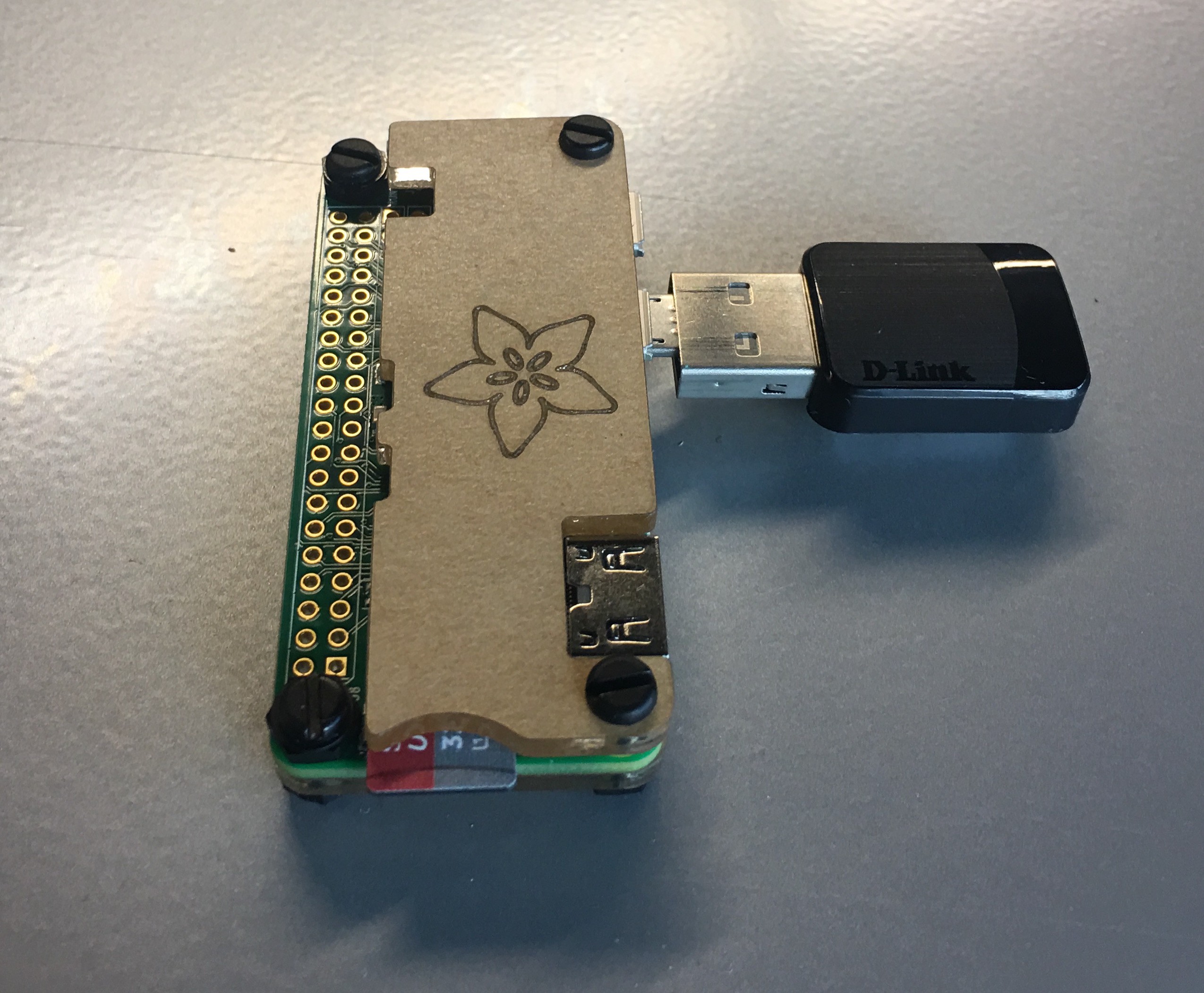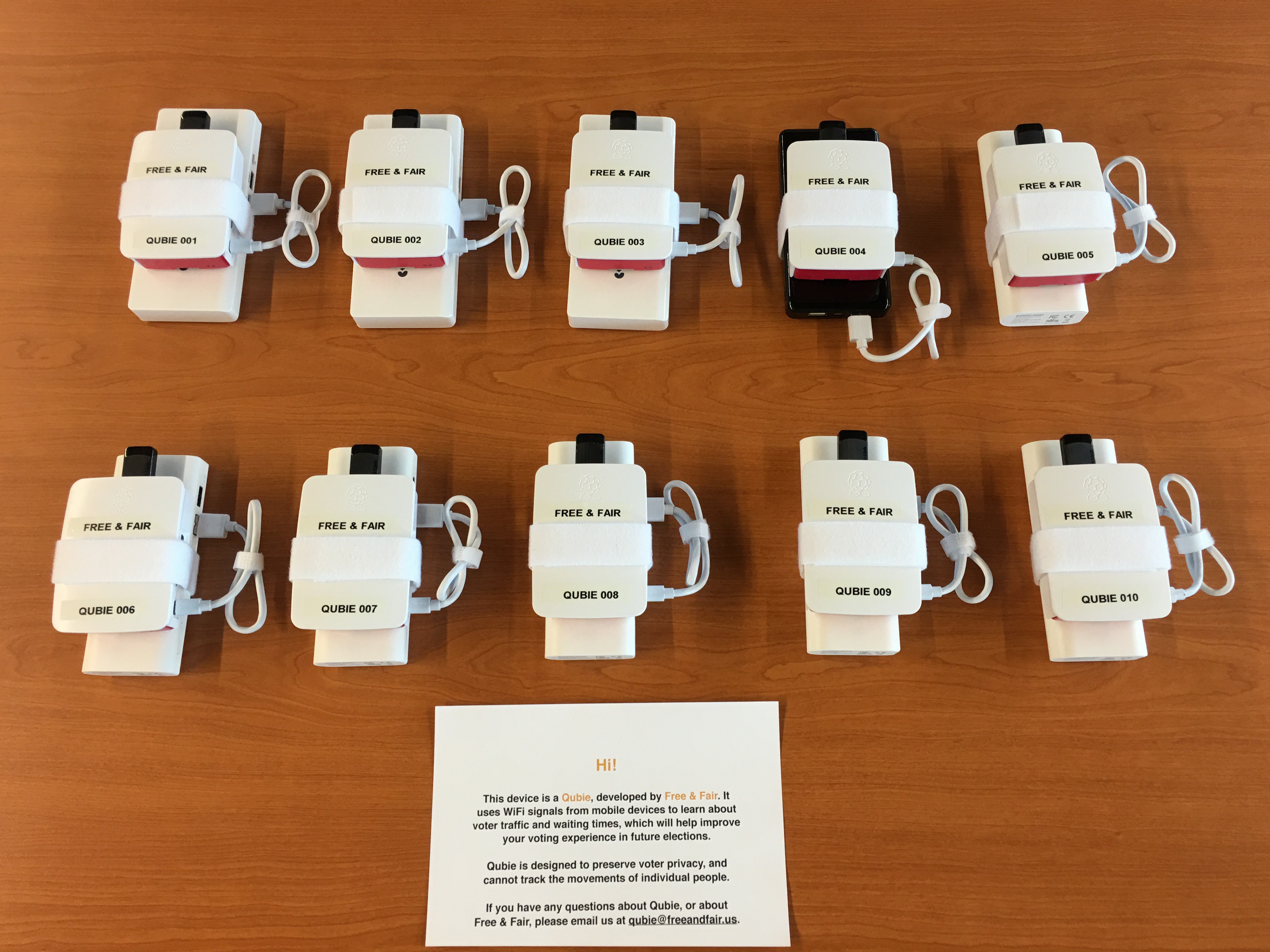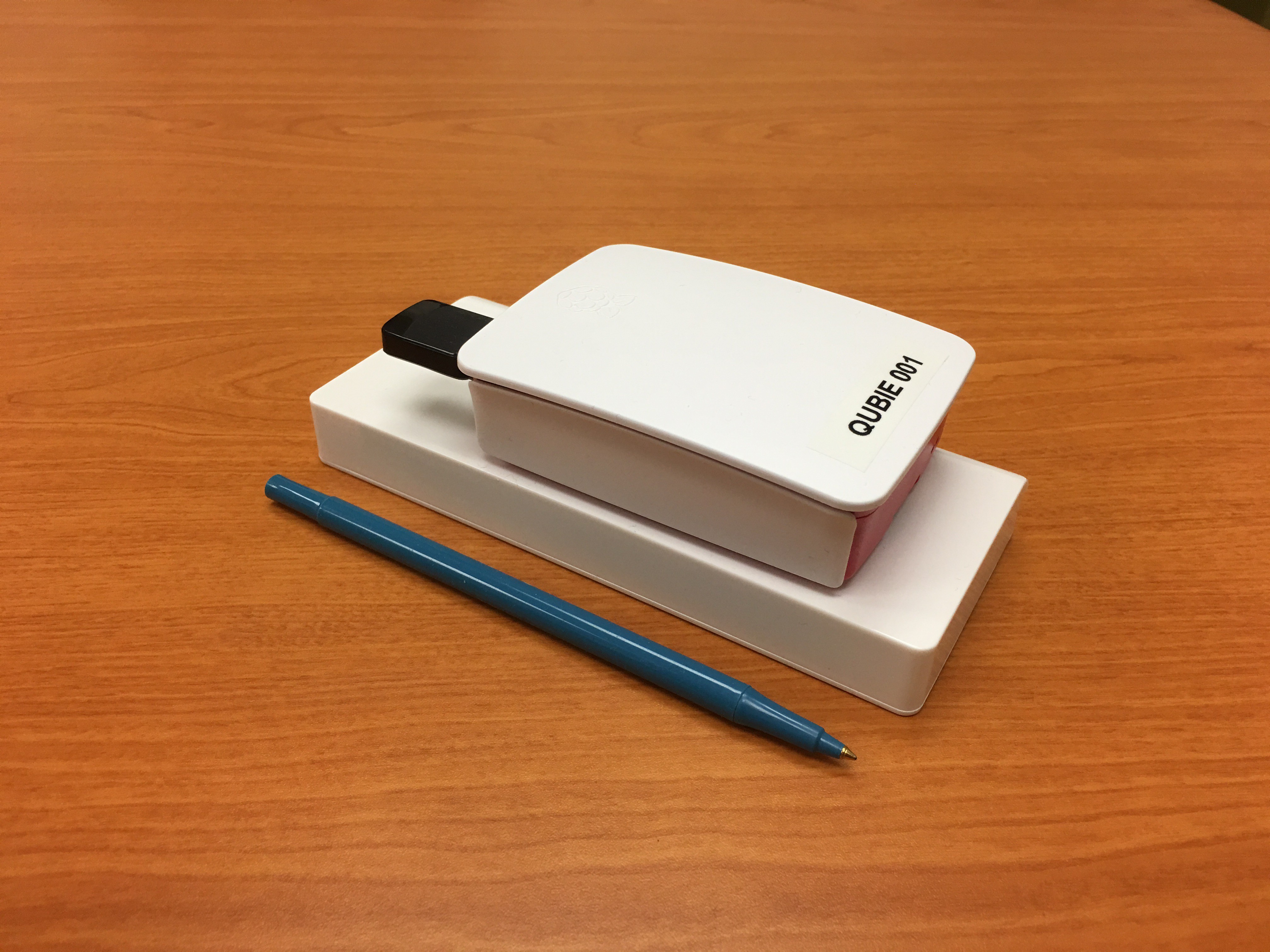-
Qubie's home on Free & Fair's website
10/10/2016 at 13:09 • 0 commentsQubie now has a home on the Free & Fair website, here: http://freeandfair.us/products/qubie/
Watch both Hackaday and the page above for future updates on both Qubie development and deployment. We're also really excited about some upcoming media coverage and can't wait to share it with you all!
-
Qubie Video is Live!
10/10/2016 at 06:09 • 0 commentsAs part of the Hackaday Prize competition, we had to produce a short video about Qubie... and it's now live, here. Enjoy!
-
More on Qubie Zero
09/27/2016 at 17:00 • 0 commentsIn doing more evaluation on Qubie Zero, we ran across some issues with the documentation that would have potentially prevented a successful build; so we've fixed those in the repository, and the instructions in INSTALL.md should now work on basically any Raspberry Pi hardware (keeping in mind not to build the Bluetooth stuff on hardware without Bluetooth).
We've also done some head-to-head power benchmarks using the same 13400mAh battery pack, and found that Qubie runs for about 24 hours, while Qubie Zero runs for about 40. That is, Qubie Zero runs 66% longer on the same battery — which is great for deployment in polling places, as it means we can use much smaller and cheaper batteries (on the order of 5000mAh, at a cost of about $5) to get Qubie Zero through an entire day at a polling place.
Of course, these power numbers will change dramatically in future versions of Qubie when we are uploading information in real time for analysis and reporting... but it's a much better starting point.
-
Initial Tests of "Qubie Zero"
09/12/2016 at 23:18 • 0 commentsAs part of trying to make Qubie less expensive, we've been experimenting with using different components. Meet Qubie Zero:
Qubie Zero is just like Qubie, with two key differences:
- It uses a Raspberry Pi Zero instead of a Raspberry Pi 3.
- It has no Bluetooth LE status notifications.
Our initial tests show that Qubie and Qubie Zero record essentially the same device information when running side-by-side, and that Qubie Zero can run for more than 40 hours on a fully charged 13400 mAh battery pack. This compares to our previous runs of 36 hours for Qubie on a fully charged 18500 mAh battery pack, meaning that Qubie Zero is far more power-efficient - it seems that the processor draw outweighs the WiFi radio draw, which is a bit of a surprise considering how little computation we're having Qubie(s) do. Qubie Zero is also a lot cheaper, at $5 for a Raspberry Pi Zero vs. $39 for a Raspberry Pi 3. Our tests and evaluations continue...
-
TechCrunch and Hackaday Prize Finals
09/02/2016 at 22:58 • 0 commentsQubie was featured in a TechCrunch article in mid-August - https://techcrunch.com/2016/08/12/qubie-is-an-open-hardware-solution-for-tracking-wait-times-at-voting-places/ - and was also selected as a Hackaday Prize Finalist in the Automation round!
We'll have a busy September: working on possible deployments for the November election, filming a Hackaday Prize video, and testing Qubie's software on some cheaper open source hardware to make it more practical for wider adoption.
-
Real-World Deployment: Shasta County, California, 7 June 2016!
07/11/2016 at 23:06 • 0 commentsThe first deployment of Qubie in an actual election took place on Tuesday, 7 June 2016, at 10 polling places in Shasta County, California!
We had to scramble at almost the last minute to get them assembled, packed, and shipped to California before the election. Here they are waiting to go out:
They were deployed for the entire day, and (anonymously!) logged a total of over 30,000 WiFi contacts. We're in the process of analyzing the data now, but we've already seen from initial data plots some phenomena that we expected to find: surges in polling place activity around lunchtime and near the end of the day.
We anticipate that these data sets will help us improve our models, to make Qubie more useful for real-time reporting. Thanks for participating in our pilot deployment, Shasta County!
-
Power Consumption/Battery Life
05/24/2016 at 17:42 • 0 commentsWe've now tested the Qubie prototype around the office a few times; 3 of them, actually - they all look like the one pictured below, but with a short USB cable connecting the Raspberry Pi to the battery.
In addition to gathering a lot of useful presence data for us to analyze, our testing also yielded some very encouraging battery life numbers. Using the 18500mAh battery shown in the picture below, Qubie can run for about 36 hours while providing an update every minute to a connected Bluetooth LE device. That's far more time than we'd need at a typical polling place, since polling places are usually open for between 12 and 16 hours.
-
Trial deployment in the Primaries
04/25/2016 at 21:43 • 0 commentsWe hope to deploy Qubies in conjunction with elections process researchers during the Presidential Primaries in a few dozen polling places. We are working with a key organization in that space. Stay tuned!
-
Gathering feedback from national experts
04/25/2016 at 21:43 • 0 commentsWe have shared the Qubie concept with our friends on the Presidential Commission on Election Administration (the PCEA, for Election geeks), select members of the Board of Advisors of Verified Voting (on which one of our team members sits), and members of the Elections Verification Network. Feedback has been uniformly positive and enthusiastic thus far.
-
Qubie goes to Hackaday.io!
04/20/2016 at 19:12 • 0 commentsWe are excited to put Qubie in the running for HackadayPrice2016! With Qubie, we aim to build an easy to use and straightforward device that automates the measurement and estimation of polling queue wait times for election officials and voters at home.
Qubie
Qubie is a small wireless device that measures waiting time at a polling place for the benefit of both election jurisdictions and citizens.
 Shpat
Shpat

